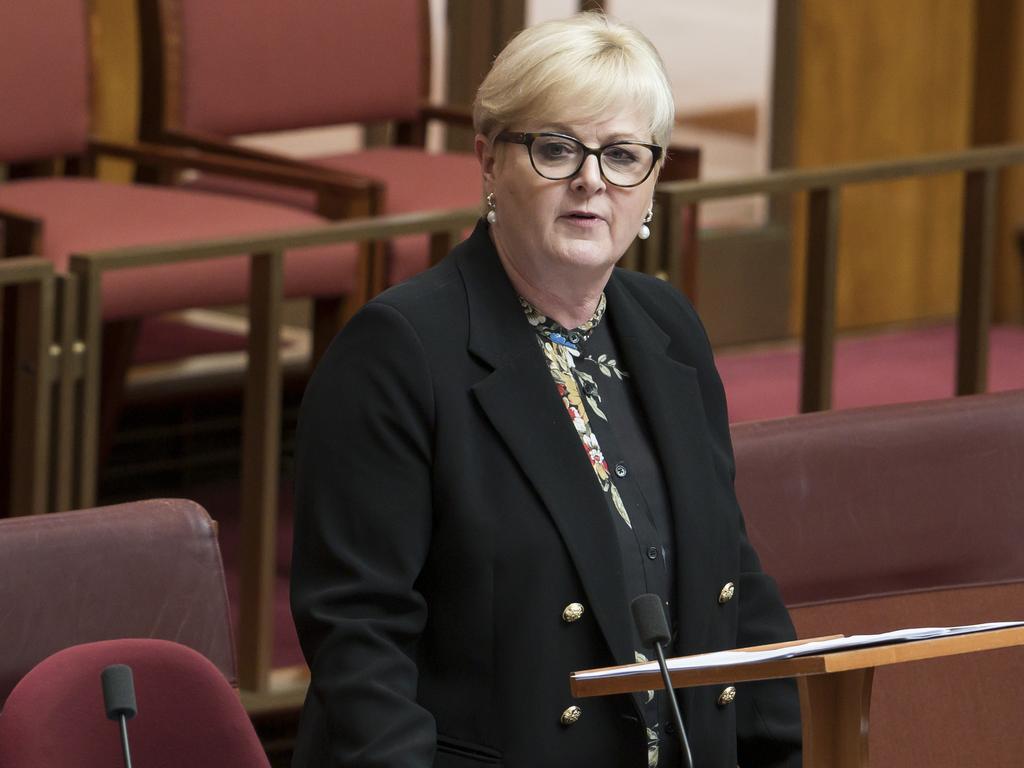
For more than six weeks I have been like Oliver Twist. Please sir, may I have a statement of claim? Can you afford me a little writ that has been filed, sir? Please. Surely you can throw an affidavit my way, it has been read into evidence after all. Please, sir?
The begging required by this court may not be the fault of the Principal Registrar, who has been the direct beneficiary of my Oliver Twist impersonations. But it is most certainly the fault of the WA Supreme Court judges. These judges, like others, have the power to make justice as open as they wish. They, not parliament or any other body, dictate the rules that dictate access to court documents.
In Western Australia, judges have written a jumble of rules that force the media to beg for information that we reckon the country deserves to see. Before I bring you more on the sad state of justice in WA, it’s worth reiterating why open justice is important.

Our courts are not merely dispute resolution mechanisms serving parties to those disputes and those who judge them. Our courts are critical public institutions, an arm of our democracy, which must be open and transparent to the public at large so we can be sure they are functioning as they should. As High Court judge Harry Gibbs said once, without public scrutiny “abuses may flourish undetected”.
The public will have little confidence in the conduct of courts they cannot attend and whose proceedings are not open, in real time, to vigorous scrutiny by that other arm of democracy – the media.
Neither should parties to civil litigation have veto rights over open justice. While there should be limits to public scrutiny, these should be rare and rigorously tested. Simply acquiescing to the wishes of parties to litigation is a recipe for the system to be gamed.
This started when I wanted to bring you news of what Reynolds included in her statement of claim. One would think that is a matter of great public interest. Not public prurience. Public interest given it involves allegations of a political cover-up. But no. Over the course of weeks, the court entertained objections to my request by Higgins’s lawyers.
What was most extraordinary was that the court allowed one journalist to get a copy – but not us. While I was jumping through hoops, and batting off objections from Higgins’s legal team, including that it was too complicated for us to report properly, those same lawyers allowed Richard Ackland to get a copy – which he duly published in full.
Higgins’s lawyers said they feared we would report only one side. That was almost funny. We wanted to report both sides – that’s why I asked for all pleadings, including Higgins’s defence. Sunlight, after all, is the best disinfectant.
Perhaps one can’t blame a party to a proceeding for taking advantage of court rules that allow them to remonstrate over certain media outlets getting access. But why do West Australian judges entertain this? It does nothing for open justice. Here, it encouraged Higgins’s lawyers to use court rules to play media favourites – and delay access.

Next, I tried to access a writ. I wanted to understand the grounds on which Reynolds is trying to, effectively, set aside the Brittany Higgins Protective Trust under the Property Act.
Once again, the public interest was plain as day. There is a sizeable question mark as to whether a trust – settled with a large sum of money paid from public coffers, paid under opaque circumstances – was established to disadvantage or defeat creditors.
Two weeks later, I’m still pleading, on behalf of our readers, for some open justice. Calls to the Supreme Court’s media office have gone unreturned. A court service officer did email me – telling me to provide “cogent reasons” for wanting to access the documents.
Is open justice a cogent enough reason, I asked in all seriousness.
If it isn’t, I asked if they might provide me with “guidance please as to what constitutes a cogent reason”. After more emails asking me for “reasons why access (is) wanted”, I’m still waiting to hear back. I asked the WA Supreme Court for a copy of an affidavit by Leon Zwier too. Chief Justice Peter Quinlan mentioned the affidavit in his judgment granting Reynolds access to the trust deed in a pre-discovery application. Let me repeat: the judgment mentions Zwier’s affidavit. I want to explain the judgment in full, what the judge is alluding to when he mentioned Zwier’s affidavit.
But no. I’m still standing here, metaphorically, with my hand out, hoping the court will take pity on someone in the media curious enough to ask for a document to better report the contents of a judgment in a matter of significant public interest.
I set this out in the hope that judges on Western Australia’s most senior court might redraft their Supreme Court Order 67B that dictates when access might be given to better align it with open justice in the 21st century. There is nothing tricky to it. They can change their own orders at any time.
Or a swifter path to open justice right now is rule four of Order 67B that says the court is free at any time to release “on its own initiative, any information, record or other thing to any person, on any terms and conditions and in any manner, it thinks fit”.
The court could make open justice free and quick right now – by scrapping its exorbitant fees for access and placing court documents on an online file.

I say this not to be smart. But with a genuine plea of a different kind: to remind judges on the West Australian Supreme Court why open justice matters and why we in the media take it very seriously. We want to report fully, accurately and in a timely way. To do that, we need a court’s commitment to open justice.
Justice Lee, from the Federal Court, walks the talk on open justice. He allowed the public to watch Bruce Lehrmann’s defamation case, in real time, via a video link. It’s 2024, after all. While some doofus shared the video in breach of the rules (and swiftly faced contempt), most of us treated open justice seriously.
We reported fully, accurately and without delay. Lee ensured documents were placed on the court website – again in real time (no begging required) – so we could understand the proceedings and what parties, witnesses and lawyers were alleging. This is open justice.
In another case of intense public interest – the Ben Roberts-Smith defamation trial – judge Anthony Besanko ensured that online files were updated in real time so we could do our job.
We get that open justice is not open slather. There are always sound exceptions to the rule.
Alas, in 21st-century Western Australia, open justice is not just an overpriced buggy and cart. Worse, open justice in the west is the wrong way around: it appears to be the exception to the rule.







There are many things I would like to tell you about the Linda Reynolds v Brittany Higgins defamation battle. But the West Australian Supreme Court won’t allow it. Not yet. Not only is there no certainty when it might, it’s uncertain whether it will throw open the doors of justice to the citizens at all.